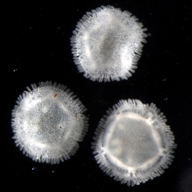Annual publication showcases the "Super" at the Ohio Supercomputer Center
Want to know what makes the Ohio Supercomputer Center “Super”? Spend 20 minutes with the 2008 Research Report, and you’ll get more than a glimmer of the breadth of OSC’s impact on academic and industry researchers.
